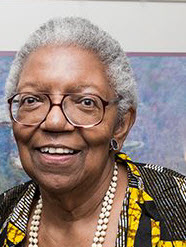Become a Patron
 Vernellia R. Randall , Racist Health Care: Reforming an Unjust Health Care System to Meet the Needs of African-Americans, 3 Health Matrix: Journal of Law-Medicine 127-193 (Spring, 1993)(312 footnotes omitted)
Vernellia R. Randall , Racist Health Care: Reforming an Unjust Health Care System to Meet the Needs of African-Americans, 3 Health Matrix: Journal of Law-Medicine 127-193 (Spring, 1993)(312 footnotes omitted)
“Racist” and “racism” are provocative words in American society. To some, these words have reached the level of curse words in their offensiveness. Yet, “racist” and “racism” are descriptive words of a reality that cannot be denied. Ethnic-Americans live daily with the effects of both institutional and individual racism. Race issues are so fundamental in American society that they seem almost an integral component. Some Americans believe that race is the primary determinant of human abilities and capacities. Some Americans behave as if racial differences produce inherent superiority in European-Americans. In fact, such individuals respond to African-Americans and European-Americans differently merely because of race. As a consequence, many African- Americans are injured by judgments or actions that are directly or indirectly racist.
Much of the attention of the last 20 years has focused on individual racist behavior. However, just as individuals can act in racist ways, so can institutions. Institutions can behave in ways that are overtly racist (i.e., specifically excluding African-Americans from services) or inherently racist (i.e., adopting policies that while not specifically directed at excluding African-Americans, nevertheless result in their exclusion). Therefore, institutions can respond to African-Americans and European-Americans differently. Institutional behavior can injure African-Americans; and, when it does, it is nonetheless racist in outcome if not in intent.


